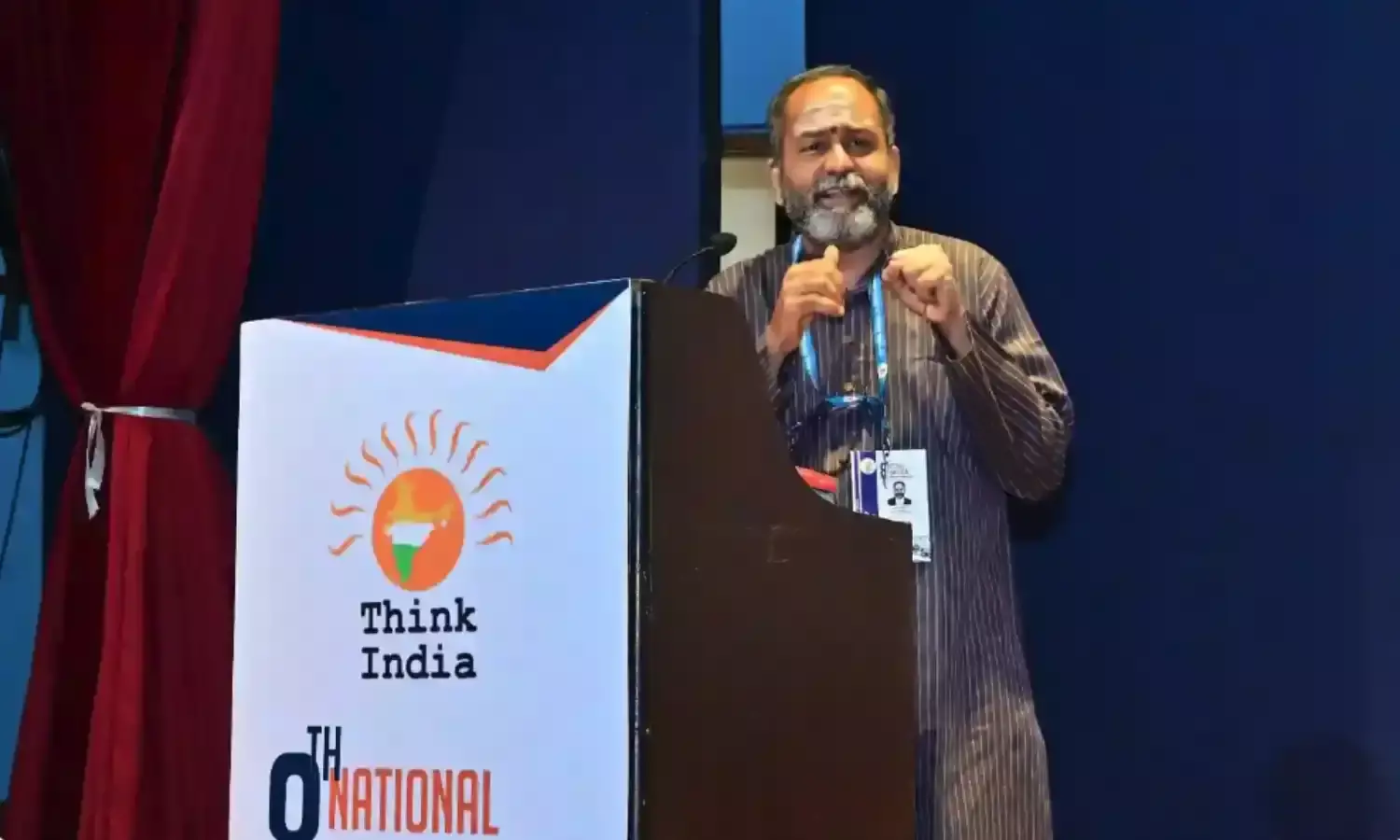Trying To Understand Existing Laws Through Our Civilisation Perspective Is The First Step Towards Decolonisation: Justice GR Swaminathan

Justice GR Swaminathan said today while speaking at an event in Delhi that trying to understand an existing law through our civilisation perspective is the first step towards "decolonisation".
Justice Swaminathan of the Madras High Court was speaking at the inaugural session of the 8th National Symposium on Landmark Judgment of 2024, organised by Think India, a forum for students in National Institutes across India.
"Trying to understand an existing rule or provision through our civilisation perspective, I would say, is the first step towards decolonisation. From which standpoint you view, makes all the difference. Therefore I would request all of you to approach everything through our civilisational perspective. For that, we will have to be fully equipped with our resources", he said.
He recommended for reading by students, Justice Rama Jois's book 'Legal and Constitutional History of India ' and the speech of Justice S. Abdul Nazeer on decolonising the Indian legal system. He also recommended the book, 'History of Dharmashastra' by Dr. PV Kane.
At the outset, he said that rigorous discussion on Judgments of the Courts is absent in India. He quoted from a book by Professor Upendra Baxi who shared the same opinion. "Unless the Judiciary is vigorously interrogated, accountability will not be there at all. There must be a sustained criticism and discussion of Judgments", he said.
During his talk, Justice Swaminathan narrated a story from Ramayana to say that "pardoning" is the ultimate virtue and Dharma. He said that though he initially disagreed with the Judgment of the Supreme Court ordering the release of the convicts in the Rajiv Gandhi assassination case. He said that after learning about the said story from the Ramayana, he realised the object and purpose of Article 72. "To me, the basis of Article 72 and Section 433 of CrPC lies in Ramayana", he said. He added that when he said this on an earlier occasion, he was trolled on social media for linking Ramayana to the Constitution.
Speaking about the book, 'The Colonial Constitution' by Arghya Sengupta, Justice Swaminatha said, "If you read this book, you will come to a definite understanding that our Constitution is nothing but a product of the colonial legacy. There is nothing Swadeshi about our Constitution. It is out-and-out, a colonial stuff. The Government of India Act of 1935, when it was promulgated, the leaders of our freedom movement bitterly attacked it. But then when the Constitution was framed, 70% of the Constitution was based on the Government of India Act 1935". He then read a paragraph from the said book.
While clarifying his stand on the subject, the Judge said, "We have to operate within the four corners of the law. We have taken oath to go by the Constitution and we can't breach that. But within that framework, what all we can do to align ourselves with the traditional Bharatiya thinking, that judiciary can do".
During his talk, he stressed that we must take steps towards substituting English with Bharatiya languages in Courts. He said that he permits arguments in both Tamil and English in his Court. He lauded the initiative by a Division Bench of the Karnataka High Court headed by Justice Krishna Dixit, passing a judgment both in English and Kannada language. He said that leaning towards Bharatiya languages is a major step towards decolonisation.
He referred to Justice Katju applying mimamsa principles of interpretation and said that he followed the said judgments of Justice Katju and applied mimamsa principles of interpretation. He referred to a judgment passed by him applying the principle of “Atidesha".
He asked the students who were in attendance to think about and suggest alternatives to the present robe worn by lawyers in the country. He also said that he does not agree with addressing judges as "My Lord". "Let us not delude ourselves as if we are rendering a divine function. Not at all.... It is a professional job which we have to do", he said.
He further said, "Decolonisation does not necessarily mean we have to go back to our roots. We have to give up this colonial baggage and find solutions that are more suited to our present needs and circumstances".
He said that though the names of IPC, CrPC and the Evidence Act have been changed, their contents have not been substantially changed. He said that though he welcomes the change in name, we should not stop at changing the name alone and that it is important to change the content also.

